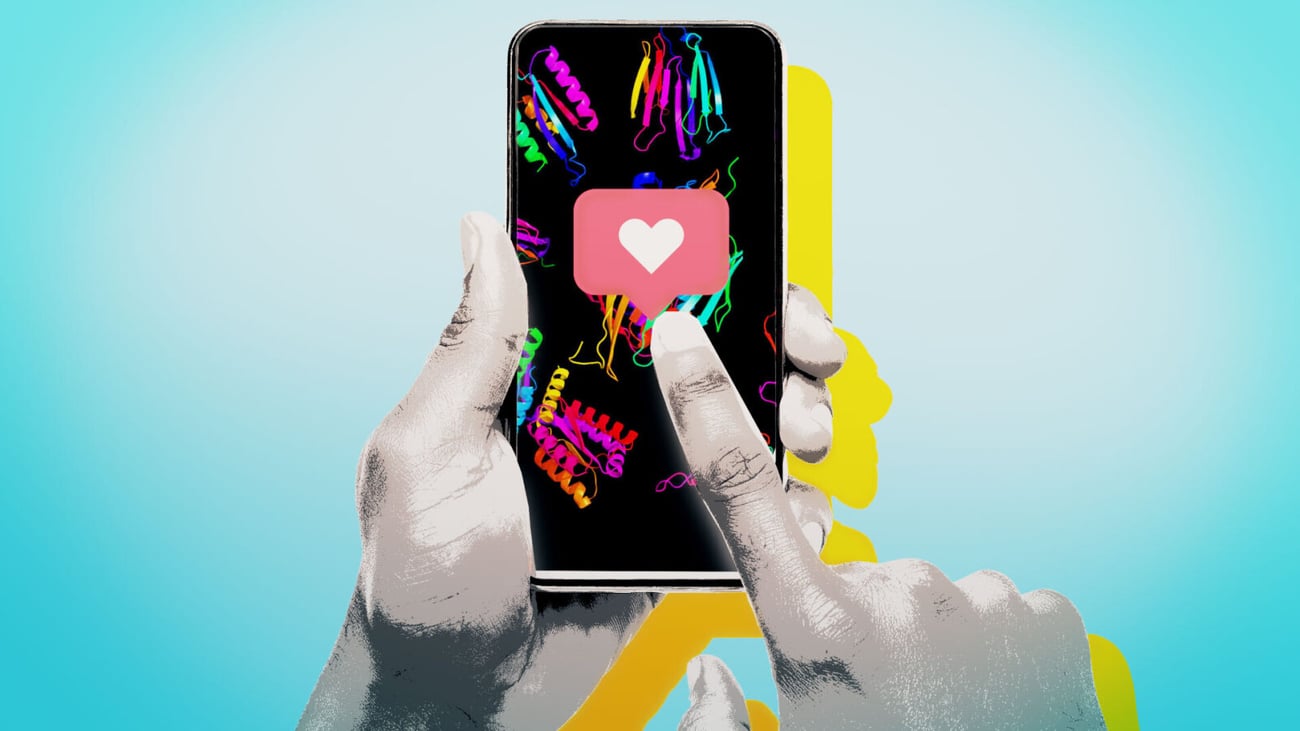artificial intelligence
Big Tech betting on AI protein designs

TikTok teens? More like TikTok proteins. Big Tech is getting into the AI protein design game. Salesforce published a paper in Nature Biotech introducing a protein language model called ProGen that can create new protein sequences for specific functions. ByteDance, TikTok's parent company, recently introduced a method for adapting other protein language models to create new sequences, and Meta has been deep in protein research since 2019.
It might seem unusual for tech companies to approach a classically biological problem — and to be so transparent with their research and discoveries. But protein research is a natural choice for tech companies eager to bolster their AI efforts, experts told STAT's Brittany Trang. "It's, in a sense, a low-hanging fruit. It's kind of an obvious problem for the tools that now exist," said Simona Cristea, the head of data science at Dana-Farber Cancer Institute's pancreatic cancer research center. Read more here.
telehealth
Critics say telehealth rule will worsen opioid crisis
Doctors, public health experts, and even Democratic members of Congress are sounding the alarm on a new Biden administration proposal to restrict access to a key addiction treatment.
The proposal would curtail access via telehealth to buprenorphine, a common, highly effective drug used to treat opioid use disorder. While doctors can currently give out both new buprenorphine prescriptions and refills after telemedicine visits, the new rule would require an in-person examination for patients who want to stay on the medication for longer than 30 days.
"I don't want federal rules dictating to me when I have to cut somebody off a medication that, on the basis of the information available to me, is still appropriate for the patient," Brian Hurley, a public health official in Los Angeles, told STAT addiction reporter Lev Facher. Read more here.
Health tech
Color lays off employees working on Covid testing
According to LinkedIn and Twitter posts from impacted workers, health tech company Color laid off 300 employees on Wednesday. CEO Othman Laraki confirmed the layoffs on LinkedIn, saying the company decided to downsize its Covid testing operations given the end of the public health emergency. He wrote that the company will focus on testing and telehealth infrastructure for government programs, and prevention products for employers and large healthcare purchasers.
The company launched in 2015 with a focus on consumer genomics, but during 2021, pivoted to public health technology. The company began providing schools, nursing homes, cities, and medical schools with Covid testing systems. "What happened was initially we built a product, and in order to deliver it we built some infrastructure," Laraki told STAT at the time. "And then over time what we realized is, it's the infrastructure that's the product."
In 2021, when investor money was flowing, the company raised $167 million in a Series D funding round. In November of 2021, it was valued at $4.6 billion. But like other health tech startups, Color has been hit by the tough funding climate — not to mention the declining demand for testing as the pandemic wanes.
regulation
FDA rejected Neuralink's request for human research
The brain-computer interface company Neuralink has had a harder time starting trials in humans than founder Elon Musk has let on. Musk has said since 2019 that the company, which has tested its tech in monkeys, would soon start human studies. This morning, Reuters reported that the FDA rejected Neuralink's proposal for human studies last year, citing dozens of issues including the risk that the implant's wires could move elsewhere in the brain and questions about how the implant could be taken out without damaging the brain. In November, Musk said the company would secure the FDA's greenlight this spring — but employees told Reuters they're skeptical the issues can get fixed quickly.


No comments